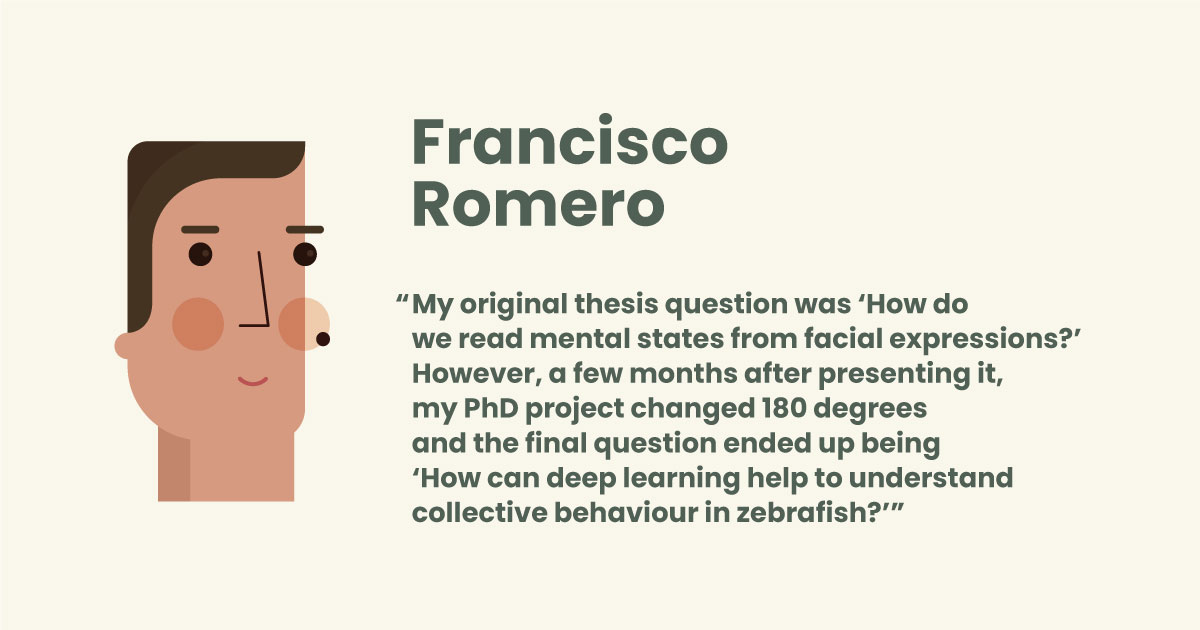06 January 2022

What was your thesis question and what did you find?
My original thesis question was ‘How do we read mental states from facial expressions?’ However, a few months after presenting it, my PhD project changed 180 degrees and the final question ended up being ‘How can deep learning help to understand collective behaviour in zebrafish?’ We found that deep learning is a very po

